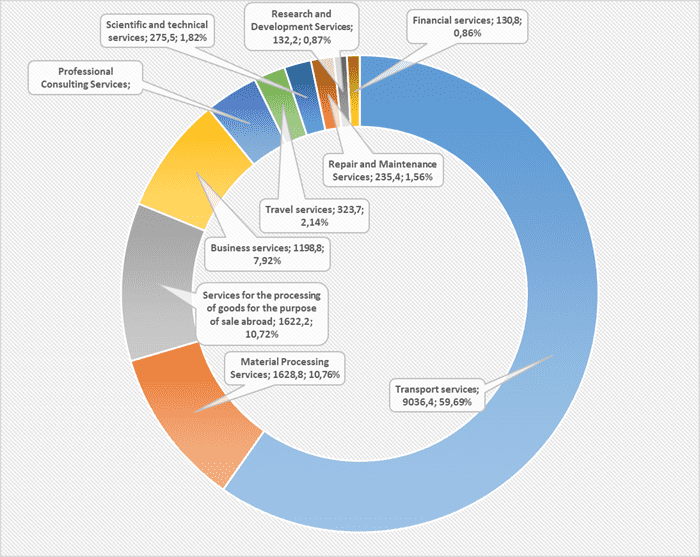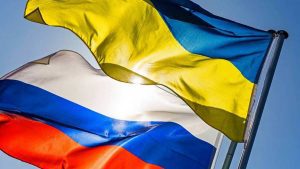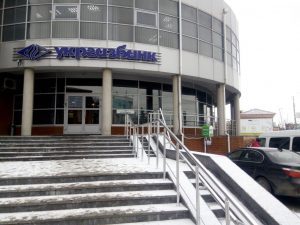Structure of export of services in 2019 (graphically)


Head of the Office of the President of Ukraine Andriy Yermak has said that a new ambassador of Ukraine to France will be appointed next week.
“Finally we will have a new ambassador to France, next week,” he said during a meeting of President of Ukraine Volodymyr Zelensky with businessmen in Khmelnytsky region on Wednesday, when asked by a participant of the meeting to help businesses establish contact with Ukraine’s embassies in a range of countries.
Oleh Shamshur has been working as Ambassador of Ukraine to France since October 2014.

State-controlled Ukrgasbank (Kyiv) does not plan to pay dividends for 2019, according to the agenda of an annual remote meeting of shareholders, scheduled for July 7, posted on the bank’s website.
“Given the restrictions established by Article 31 of the law on joint-stock companies, payment of dividends on Ukrgasbank shares won’t be carried out in 2019,” the document says.
According to the agenda, the supervisory board proposes to distribute the profit received by Ukrgasbank in 2019 in the amount of UAH 1.29 billion as follows: UAH 128.9 million (10%) is to be allocated to the reserve fund, and UAH 1.16 billion (90%) to cover losses of the previous years.
Ukrgasbank was established in 1993. The state represented by the Ministry of Finance owns 94.9409% of the shares of the financial institution.
According to the National Bank of Ukraine (NBU), as of May 1, 2020 Ukrgasbank ranked fourth (UAH 148.589 billion) in terms of total assets among 75 banks operating in the country.

The volume of services rendered by Ukrainian enterprises in January-March 2020 amounted to UAH 226.97 billion, which is 5.5% more in comparable prices than in the same period in 2019 (UAH 215.2 billion), the State Statistics Service has reported.
According to the report, the volume of services sold to the population accounted for 23.1% of the total volume of services sold.
The State Statistics Service recalled that in the first quarter of 2019, the volume of services provided by Ukrainian enterprises increased by 2.7%, in the second quarter by 3.5%, in the third quarter by 6.2%, and in the fourth quarter by 0.2%.

The Ministry of Health of Ukraine has created a separate unit, whose task will be the transplantation and treatment of Ukrainian patients abroad, the press service of the Ministry of Health reported on the Telegram channel.
“I want the number of Ukrainian patients who are being treated abroad to constantly decrease. I want them to be treated in Ukraine, to develop transplantation in Ukraine. We have everything for this. The main thing is that we have specialists who can transplant. We just need to create a certain system that would allow this to be done in Ukraine. We are doing this now,” Minister of Health Maksym Stepanov said at a daily briefing.